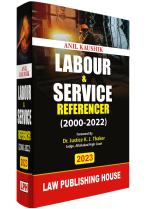The Gauhati High Court in the case of The National Insurance Company Limited vs. Omar Ali and Anr. has upheld an order whereby the Insurance company was directly made liable to pay compensation to an employee injured in a motor accident during the course of his employment.
The insurance company in appeal had argued that in view of the specific provision of the Workmen’s Compensation Act, 1923, it is not liable to satisfy the award at the first instance; it is only to indemnify the owner of the involved vehicle/insured.
Also read: After Covid now layoffs cause tremendous stress, anxiety to Indian professionals
High Court Single bench of Justice Malasri Nandi observed that Realization of the compensation from the employer alone even where the insurer is to bare the loss as per the terms of the policy would put the victims in a difficult situation in as much as it is well known that realization of compensation is easier when it is fastened on the insurer than on the insured”.
The bench referred to various provisions of the WC Act including Section 12(2) which states that principal shall be liable to pay compensation to an employee, he shall be entitled to be indemnified by the contractor for any other person from whom the employee could have recovered compensation. Section 19 stipulates that if any question arises as to the liability of any person to pay compensation, the question shall be settled by a Commissioner In this backdrop it observed.
The court relied upon C.I.T vs. Shahjada Nand and sons AIR 1966 SC 1342; State of Gujarat v. Ramji Bhai AIR 1979 SC 1098, Union of India vs. India Fisheries Pvt. Ltd. AIR 1966 SC 35, Pradip Port Trust vs. Their Workmen AIR 1977 SC 36, where the Supreme Court has held that when there is a conflict between a general and the special provision, the latter shall prevail.
Stay connected with us on social media platform for instant update click here to join our LinkedIn, Twitter & Facebook




































Add comment